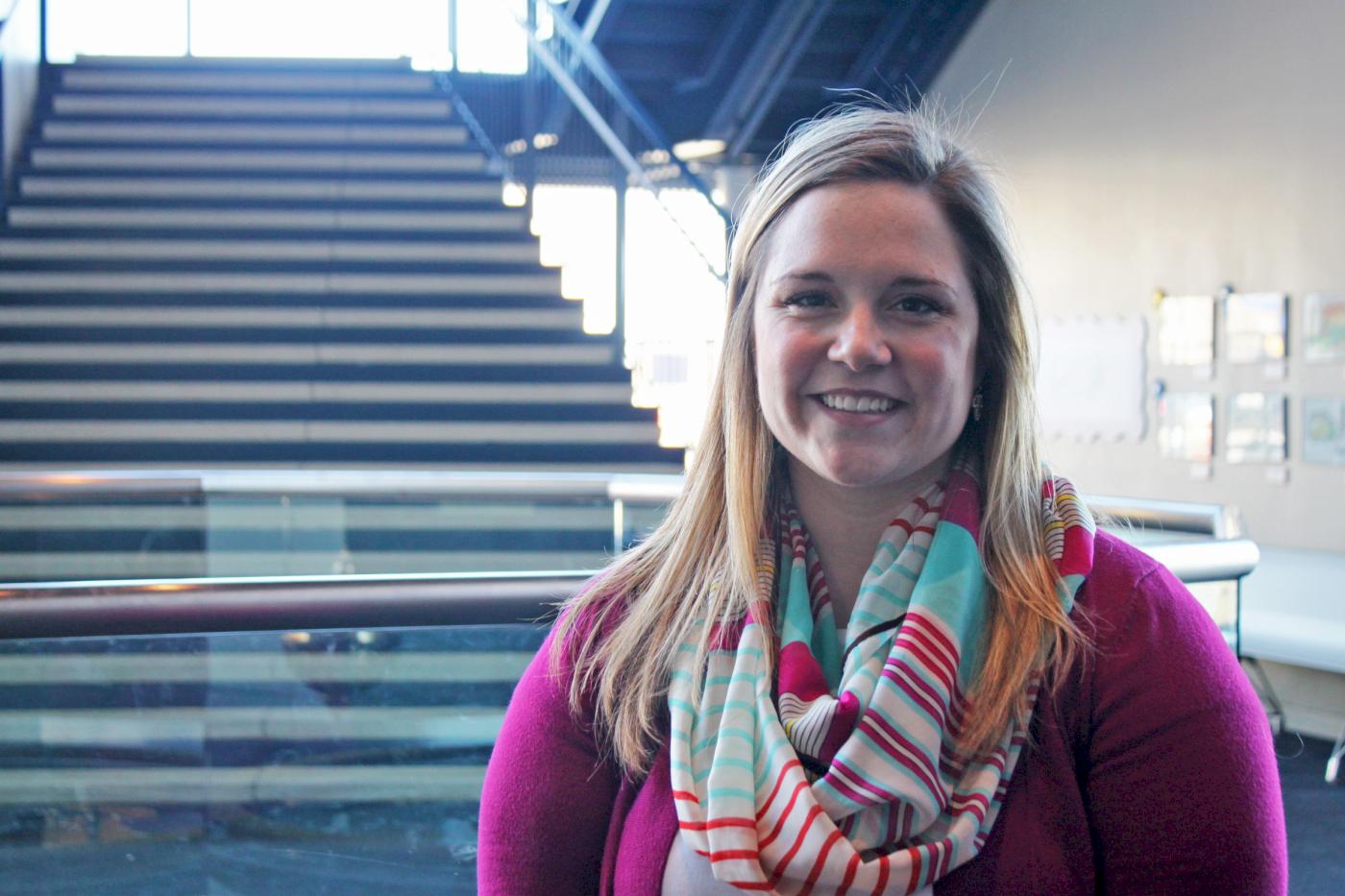Meet nutrition specialist Bailey Pudenz
- Monday February 2, 2015
- STEM in DSM
When Bailey Pudenz attended freshman orientation at Iowa State University, she signed up to be a fashion merchandising and apparel major. With one glance at the course list, though, she felt anxious and inexperienced. Pudenz found comfort in an unexpected keyword: chemistry.
On the list of courses for the food science major? Organic chemistry, biochemistry, food chemistry and more. Pudenz traded her fashion major for a food science degree, which led her to Eurofins Scientific, an international group of contract laboratories.
Pudenz’s passion for science isn’t limited to the laboratory. She participates in SCI’s Girls in Science Initiative and presented at our 2014 Coffee & Careers event.
SCI: What drew you to science growing up?
BP: Science was always one of my favorite classes growing up, so it was something I always looked forward to in school. It carried through to college, and then I went into food science. That’s my degree. It blossomed from there. My mom has Celiac disease, so she can’t eat gluten. When I started college, that was when Celiac disease was getting more of a spotlight and people were finding out what it was. The gluten-free industry was getting really big. With a food science degree, you can do research and development and develop products for people who couldn’t normally eat foods like that. I always enjoyed science growing up, and with my mom having celiac disease, it gave me an outlet to go into. Plus, I’ve always loved food, I mean, who doesn’t love food?
SCI: Was there a specific moment you realized food science was the right field for you?
BP: When I first started at Iowa State, I wasn’t a science major. At orientation, I had signed up to be a fashion merchandising and apparel major, but I started looking at the courses I was going to take, and they were things I didn’t have any experience in, and it made me a little bit nervous. I spoke with my advisor at the time, and I really wanted to stay in the College of Human Sciences, and I fell upon food science. With my mom having celiac disease and always being interested in food and cooking and science growing up, it was a perfect fit. When I saw the list of courses for the four years, the classes made a lot more sense to me. I was much more comfortable. It’s kind of funny that seeing chemistry and organic chemistry and biochemistry and food chemistry makes you more comfortable than something else.
SCI: What’s the most rewarding aspect of working with nutrition for you?
BP: I really enjoy using the major and the degree that I worked for. I really enjoy the job I have now because I get to continue to learn. I learn something new every day with the regulations I read and all the changes happening. What’s really rewarding for me is learning all of this, comprehending it, understanding it and then being able to work with our clients and helping them achieve their goals with the knowledge I’ve gained.
SCI: What’s the most challenging aspect of working with nutrition?
BP: The same reasons that I love the job are the same reasons it sometimes frustrates me. Reading regulations isn’t the most exciting thing in the world, and they are sometimes hard to follow. They have very long sentences, which often refer back to another section, so you’re reading along, and it makes a reference that’s like two sentences long, and you have to say to yourself, “OK, I don’t need that information,” so I have to block it out and continue to read. I think one of the most difficult things is reading the regulations and comprehending them. As I’ve learned more of what to look for and how to read them, they start to make more sense.
SCI: What motivates you to continue participating in Girls in Science events at SCI?
BP: It’s such a fun experience every single time. It’s fun talking to girls and sharing my experiences and the challenges or triumphs I’ve had and that it can be difficult at times. At the same time, if you love to learn and love to keep growing, science can definitely provide that to you. It’s fun to watch them interact with everyone who participates and discover what their options are for when they grow up and enter the working world.
SCI: Is there a particular piece of advice you like to offer at Girls in Science events?
BP: Science isn’t the easiest thing for me, and that is something I always explain when I had my Coffee and Careers talk. Science isn’t necessarily easy for me to do. It challenges me every day, and I honestly don’t get everything, so you have to look to your peers and your mentors. I think showing them that it doesn’t have to be easy to enjoy it, and it’s fun to have a challenge associated with it. You can do it. You can make it through. You can learn it. When it clicks, that’s the best part of it. It’s fun relaying that to them.

